Surprisingly little is written about June Mathis these days. But in the early 1920s she was considered the most powerful female executive in Hollywood. Even film historians who focus on the industry’s female trailblazers don’t devote much space to Mathis. If anything, her discovery of Rudolph Valentino and the fact that his corpse was interred in her crypt is usually the extent of their interest in her.
But Mathis played a decisive role in getting “Ben-Hur” out-sourced to Italy in 1923. She was the one most responsible for the production team being “cast aside” in Rome through all of 1924. A huge percentage of marriages floundered during that forced separation, including the earlier headline-making union of star Francis X. Bushman and actress Beverly Bayne. Many a “hot” screen career, likewise, never recovered from the long absence; June Mathis herself was the most remarkable casualty.
Here is a brief excerpt about June Mathis taken from my forthcoming novel, “Cast Aside: With Bushman at the Unmaking of ‘Ben-Hur’ in Italy.” It is an account by a jaded L.A. newsman of a late-1924 party in Rome for Francis X. Bushman, who has just rejoined his “Ben-Hur” colleagues after a two-month trek through Europe.
***
The music stopped. As the two dancers by the radio broke apart and went their separate ways a tall man at the back of the room held out his glass.
“To June,” he shouted. “A minute of silence!”
Everyone fumbled to lift up a drink. “To June—June—To June,” came a dozen different voices in a range of registers.
There wasn’t any question who he meant. June Mathis was the answer to why we were all in Rome. She had stuck out her neck to get the movie shot here. When the ax fell she became its most visible martyr.
It was clear to me then why this didn’t really seem like a party. No one had come expecting to have a good time. Each of these people had lost friends in the studio shuffle. None knew what was waiting for them at home. So they pressed together to keep their spirits from slipping, the same ones night after night, drinking the same mixed drinks, sharing the same gallows humor. This evening it was Bushman’s suite but tomorrow it might be somewhere else, because it was a moveable wake and it never really had anything to do with Bushman at all.
The radio crackled and an announcer came back on the air. “And now, ladies and gentlemen, the most popular recording in America tonight. Here is the lovely Marion Harris promising ‘There’ll Be Some Changes Made.’ ”
An invisible needle settled in its groove and a scratchy jazz band blazed a path for the soloist:
“There’ll be a
change in the weather and a
change in the sea;
From now on there’ll be a
change in me …”
I always liked hearing some gal sing about getting wise to herself and tossing out the bum who done her wrong. But this ditty just made me scratch my head. How can we believe some songbird is fired up to take charge of her life when all she can manage is a passive voice?
“ ‘Cause no one wants you
when you’re old and gray.
There’ll be some
changes made today …”
Anyway, the song might have fit the occasion better if there had been anything at all passive about little five-foot-two June Mathis. It took a feisty dame in those days to give up a safe berg in Utah for a crazy place like New York City.
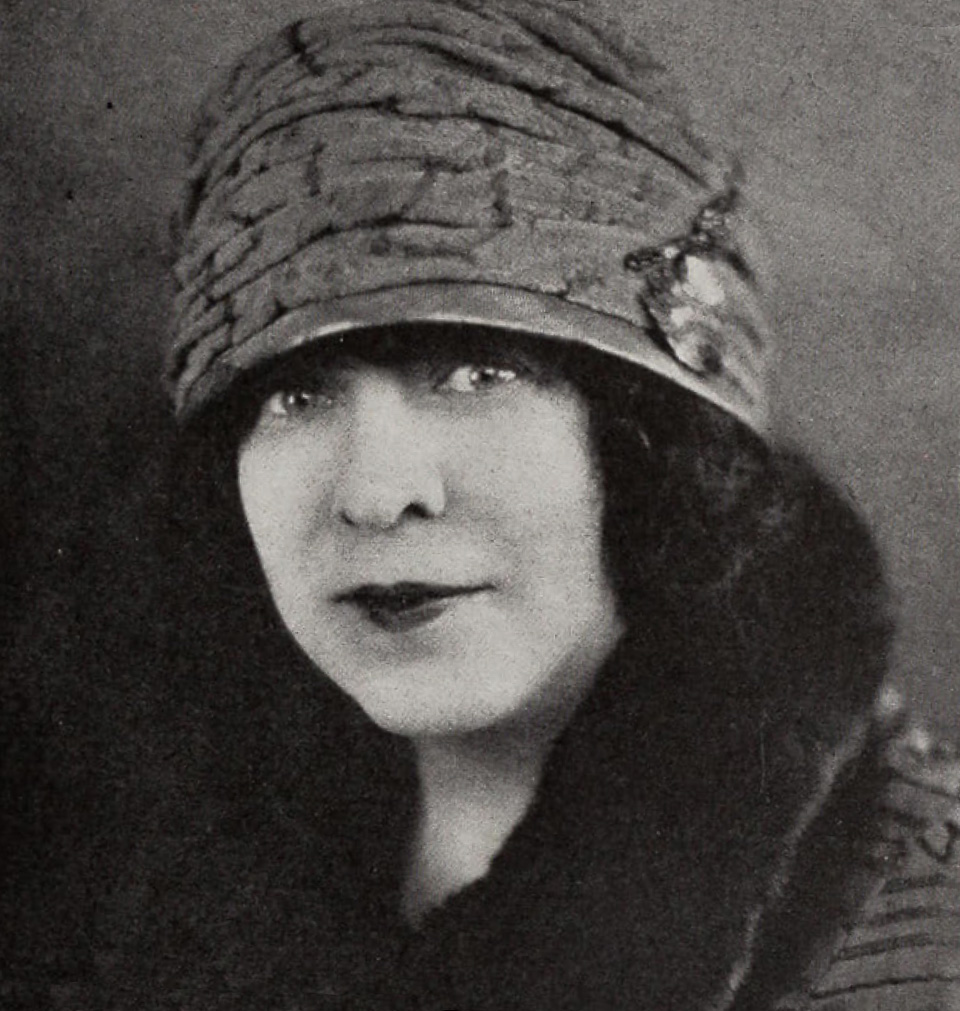
June set out to be a stage artist but she never had the stature to command the “boards,” as they say. Once she accepted that fact, she turned her wits to her writing.
She sent her stories out to all the local magazines. And eventually she attracted the notice of an editor at Vanity Fair Magazine.
At the time the contributing staff of Vanity Fair included a rather sinister character by the name of Aleister Crowley. Crowley was a huckster for the occult, a practitioner of the so-called “black arts.” He sometimes identified himself as a Satanist, of all things. He was in his mid-thirties already, and had built a cult following with his bohemian notions of drug use and open promiscuity.
June Mathis probably viewed Crowley as more a curiosity than a threat. But they did find they had one big thing in common: Both had suffered with asthma growing up. Crowley kept his under control with a tincture of heroin. If he ever offered any to June, though, she most likely would not have been interested. She was ambitious, and hadn’t come this far toward her goals to accept any easy rides.
Crowley’s celebrity was based on gimmicks, if you ask me. At the top of the list was his naked Tarot card readings. Evidently removing all of one’s clothing made it easier for him to see a person’s future. The Vanity Fair staff was as intrigued as anyone by this notion, and they kept after Crowley to lead such a session until he finally agreed. In their case, though, he insisted all those flabby New York intellectuals had to keep their clothes on.

The Tarot Party
That night is remembered now only by a select few Manhattanites. But Crowley’s Vanity Fair Tarot card reading amounts to a pivotal event in the “Ben-Hur” saga. Crowley probed deeply into June Mathis’s destiny and advised her to leave for Los Angeles as quickly as humanly possible. If she did, he told her, she would become the most powerful woman in American movies.
No one who knew June Mathis at the time would have believed that even remotely possible. Hollywood was already the fantasy destination for small town beauty queens and underage farmers’ daughters. June was neither. Already in her mid-twenties she had a body like a milk churn with a melon face smothered in a mop of curls. Crowley’s conviction moved her, though. She took up the study of storytelling for the movies, and began squirreling away her earnings for a one-way ticket west.
I started to notice June as she went hurrying between the bungalows on the Metro lot, usually hidden under ruffled hats and fur collars. It was an effective camouflage, I think, because it allowed her to pass freely through all those predatory department supervisors.
Before long June began showing up at the Hollywood “outsider” parties hosted by the likes of Alla Nazimova. The ladies in Nazimova’s inner circle favored gloomy fabrics with ancient Egyptian designs. They went to seances and staged pagan tea parties in the foothills. Late at night June learned from them about the magical properties of gemstones and incense and incantations.
One morning while sitting through rushes Mathis claimed to see an “aura” emanating from a two-bit contract player named Rudolph Valentino. She stormed to the front office to tell them she was making Valentino the focus of her new war drama, “Four Horsemen of the Apocalypse.” Its title was drawn from the Book of Revelations, which was in itself a good omen to June.
But there was very little that was Biblical about her adaptation. She inserted lesbians into a café scene, and had German officers in female clothing dance on a banquet table.
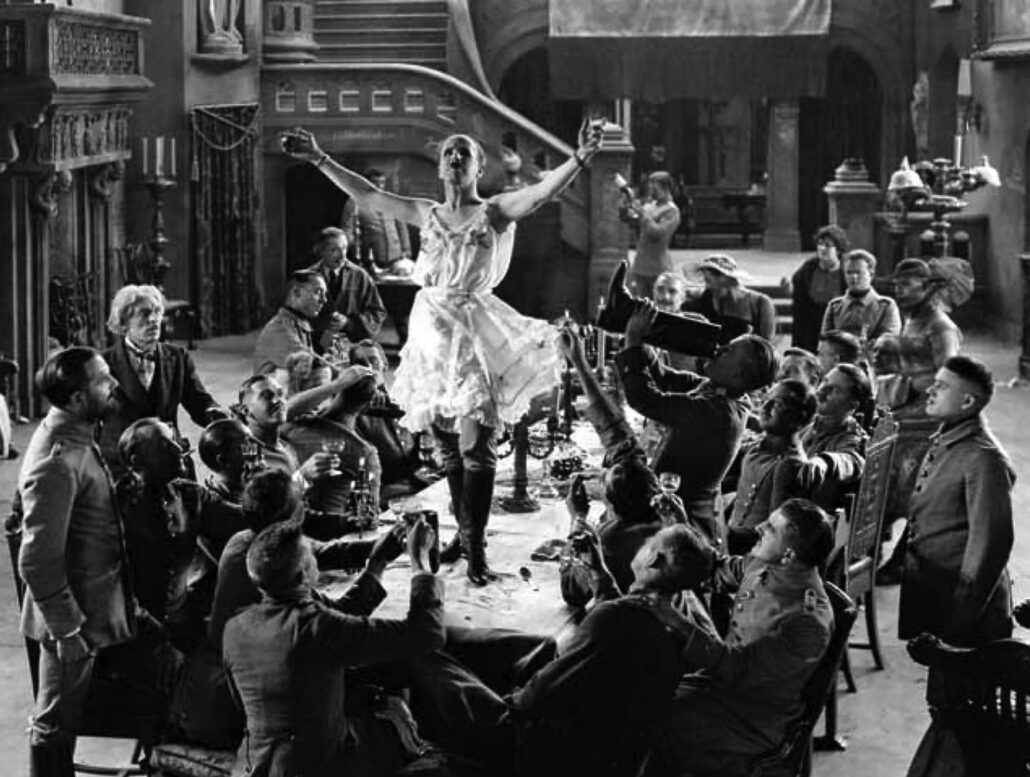
“To hundreds of people that meant no more than a masquerade party,” she would tell one interviewer. “But to those who have lived and read and who understand life, that stood out as one of the most terrific things in the picture.”
Valentino danced the tango and left millions of women around the planet swooning. Mathis herself waltzed away from it all—just as Aleister Crowley had foretold—as the most powerful woman in Hollywood.
It was almost enough to make me believe in enchanted rocks. Take Valentino out of that picture and there’s nothing to it. It was hailed as this great indictment of war, which was something we all hungered for in 1920. But the story shows how this war comes along and rips through these lives and no one can escape it. Businesses are ruined, borders obliterated, and after two hours of this we’re supposed to wag our heads and vow “no, no, never again”? We’re expected to decide to just sit out the next one? Sorry, but apocalypses don’t work that way. I mean, if people can just refuse to go along with it, how can it even be called an apocalypse?.

So June had Valentino to thank for it all, in my opinion. She gifted him with an opal ring which she claimed to have mystical properties. He wore it through his next movies. I even saw a photo of him showing it off to another of his spiritual healers, a hairy German naturalist named William Pester, known to all the film community as “the hermit of Palm Springs.” If Valentino lives to be a hundred I guess he’ll point to that ring as the reason why.
June was now Hollywood’s “million dollar girl.” Every studio in town wanted an oracle of its own like her on the payroll. So when Valentino left for Goldwyn, executives were able to lure June there as well by promising her full control over all future projects. One of the first of those was to be “Ben-Hur.” The man who owned the dramatic rights to the story, Broadway producer Abraham Erlanger, brought it to Goldwyn on one condition: June Mathis had to write the scenario and oversee every aspect of the production.
What old man Erlanger didn’t know was how unimpressed June was with the Wallace book. She quipped at one cocktail party, “Too many Christians spoil the plot.” Her scenario pared away all the cultural and religious conflicts in the story to center on the blood rivalry between two former boyhood pals, Judah Ben-Hur and Messala, now on opposing sides of the Roman occupation.
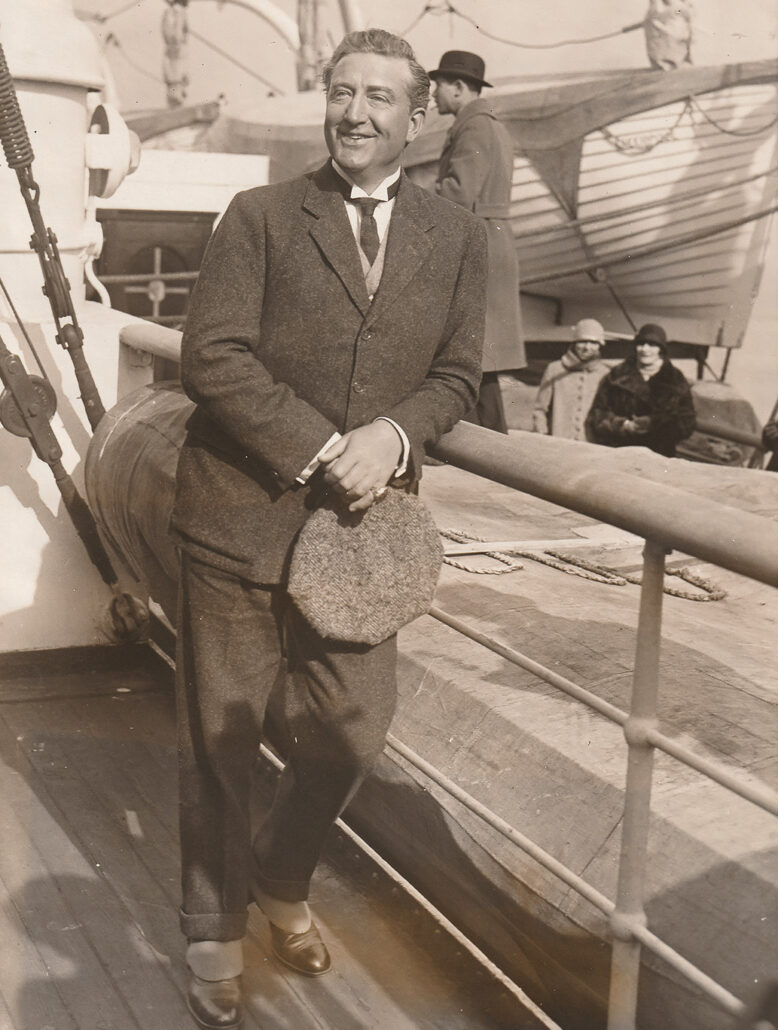
Francis X. Bushman poses during his trans-Atlantic crossing
“Ben-Hur” was subtitled “A Tale of the Christ” and its timeline coincided with the life of Jesus. To stage such a huge story on a reasonable budget, June proposed shooting it in Italy with Italian partners and a second-tier group of American film talents. She chose her current boyfriend, George Walsh, to play the lead, and wanted Francis X. Bushman as his Roman rival, Messala. Privately she said she found Bushman a pompous, over-bearing ass, but that that would guarantee his Messala becoming the most detestable screen villain of all time.
For June “Ben-Hur” was sure to be another feather in her cap. This coming after “Four Horsemen” would prove the folly of allowing men to dominate Hollywood. It was women who brought life into the world. Women were far better at enduring the pains of creation and at the nurturing of young enterprises.
The director she named, Charles J. Brabin, was a real long-shot. He was less famous for his movies than for being the husband of screen vamp Theda Bara. He was considered weak at handling actors and dealing with crews. But June would be there with him in Italy to keep everything on track—so what did it matter?
Instead of triumph, June stepped off the ship into pure betrayal. Goldwyn’s executives never intended to honor their contract terms. They didn’t trust Mathis to look out for the studio’s interests. They wanted someone they could control, someone whose career they could threaten if he didn’t toe the line, and that meant they wanted the weak Charles Brabin to have the final say in Rome. June Mathis would have to take orders, in short, from the man she herself had hired. A power struggle began that would soon become as intense and nasty as anything in her fictions.
Once Metro-Goldwyn-Mayer was up and running, its top brass sent Robert Rubin to Rome to further clip June’s wings. A different script was commissioned from a new team of writers, and New York chief Marcus Loew ordered not only Brabin and Mathis taken off the project but many of their key players replaced as well.
The last anyone heard from June Mathis she was hunkered down in Hollywood with her latest consolation prize, a cameraman named Silvano Balboni she had picked up in Italy. They were to be married shortly as she groomed him to be her next great discovery.

Here’s a curious post script to the story: While she was in Italy, June missed the chance for a big reunion with Aleister Crowley. For some half-dozen years he had been running a spiritual retreat in Sicily known as the Abbey of Thelema at Cefalù. That was soon to end. however. Crowley’s cabal was about to be given the boot by Benito Mussolini, who had deep moral reservations concerning Crowley’s brand of anti-Catholic hedonism.
Some day Aleister Crowley would go to his grave assured of one big Hollywood credit. If “Ben-Hur” turned out to be the gift to the Christian world that its studio promised, Crowley could say he had played a part in its making. All of it was only possible thanks to June Mathis and the timely intervention of a Satanist.
The throaty voice of Marion Harris fell back in line for a final assault:
“When you grow old,
you don’t last long—
You’re here today and
then tomorrow you’re gone …”
***
Lyrics to “There’ll Be Some Changes Made” by William (“Billy”) Higgins (c) 1921. Used by permission.
“Cast Aside” (c) 2022 by John W. Harding. All rights reserved.


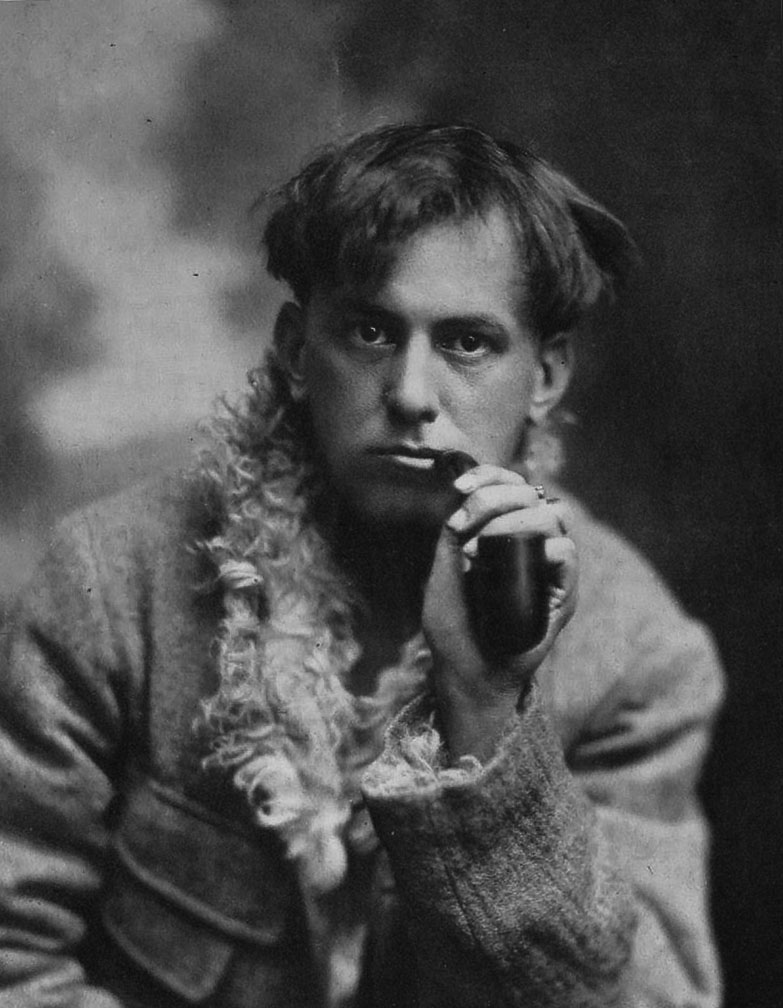
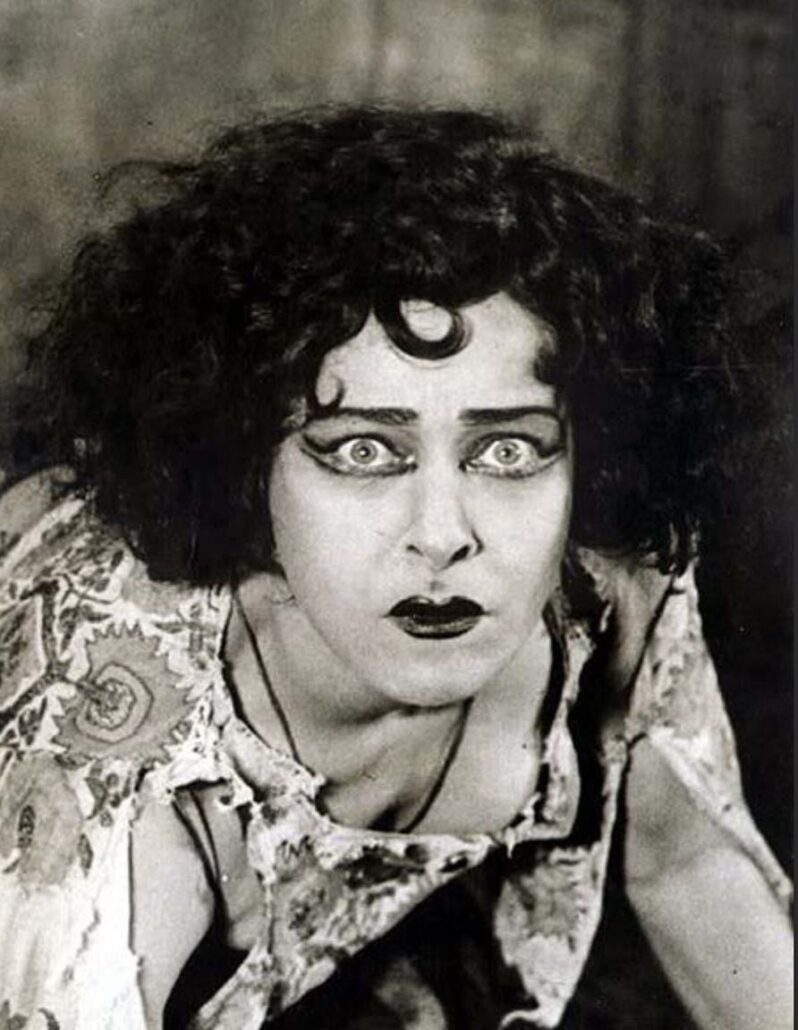
Leave a Reply